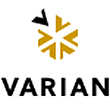 The Office of Foreign Assets Control (“OFAC”) released on Friday its civil penalty information for February 2006 and reported that Varian, the Palo Alto scientific instrument giant, agreed to pay $114,958 to settle allegations that its Swiss and German subsidiaries had sold software to customers in Iraq and Iran without an OFAC license or outside the scope of an existing license. The payment was made after a voluntary disclosure by Varian.
The Office of Foreign Assets Control (“OFAC”) released on Friday its civil penalty information for February 2006 and reported that Varian, the Palo Alto scientific instrument giant, agreed to pay $114,958 to settle allegations that its Swiss and German subsidiaries had sold software to customers in Iraq and Iran without an OFAC license or outside the scope of an existing license. The payment was made after a voluntary disclosure by Varian.
So does that give you a little twinge of déjà vu? It should. It was only last July when Varian entered into settlement agreements with the Bureau of Industry and Security (“BIS”) over similar antics by its overseas subsidiaries. Varian paid $26,400 for computers and associated software shipped to Syria by its Dutch subsidiary without a BIS license. The Dutch subsidiary paid an additional $39,600 for separate unlicensed shipments of computer hardware and software to Syria. Finally, the company’s Swiss subsidiary paid $8,800 for shipment of computers and associated software to North Korea without a BIS license. All of these settlements also followed voluntary disclosures.
In my view the single weakest link in current compliance programs are overseas subsidiaries. All too often the foreign subsidiaries believe that only the local law of their own country governs the re-export of merchandise once they have received it. Moreover, shipment of merchandise from the subsidiaries to North Korea, Iran or other sanctioned countries won’t raise the red flags that such shipments do in the United States. Companies that do not make sure that their compliance training also covers employees of their subsidiaries really should set aside several hundred thousands dollars in reserves for the inevitable day when a European subsidiary sends a shipment to Iran.
 Permalink
Permalink
Copyright © 2007 Clif Burns. All Rights Reserved.
(No republication, syndication or use permitted without my consent.)

 Posted by
Posted by  Category:
Category: 

